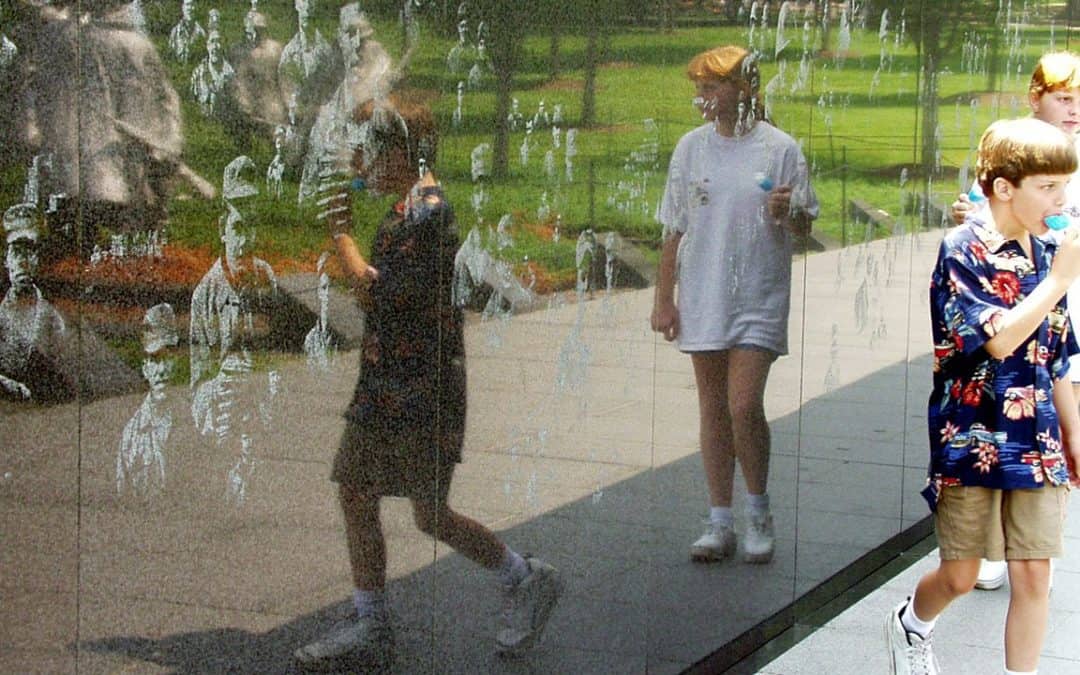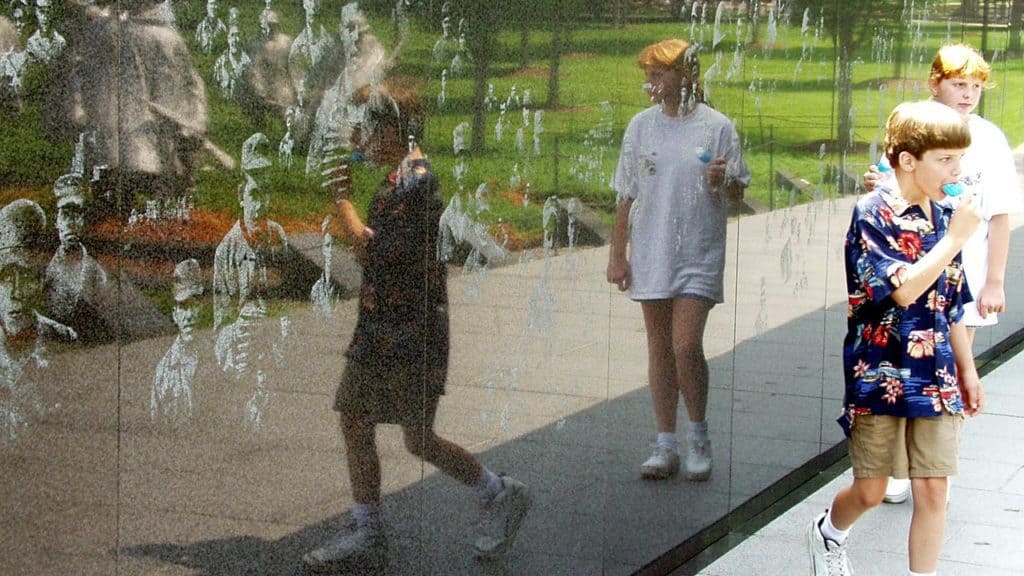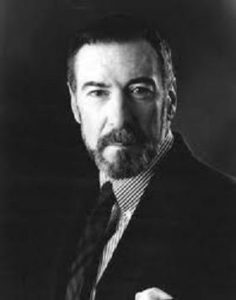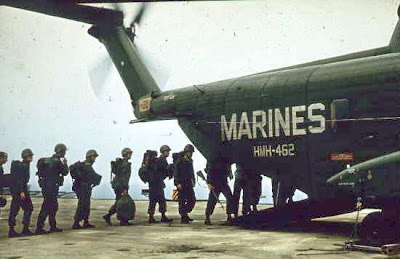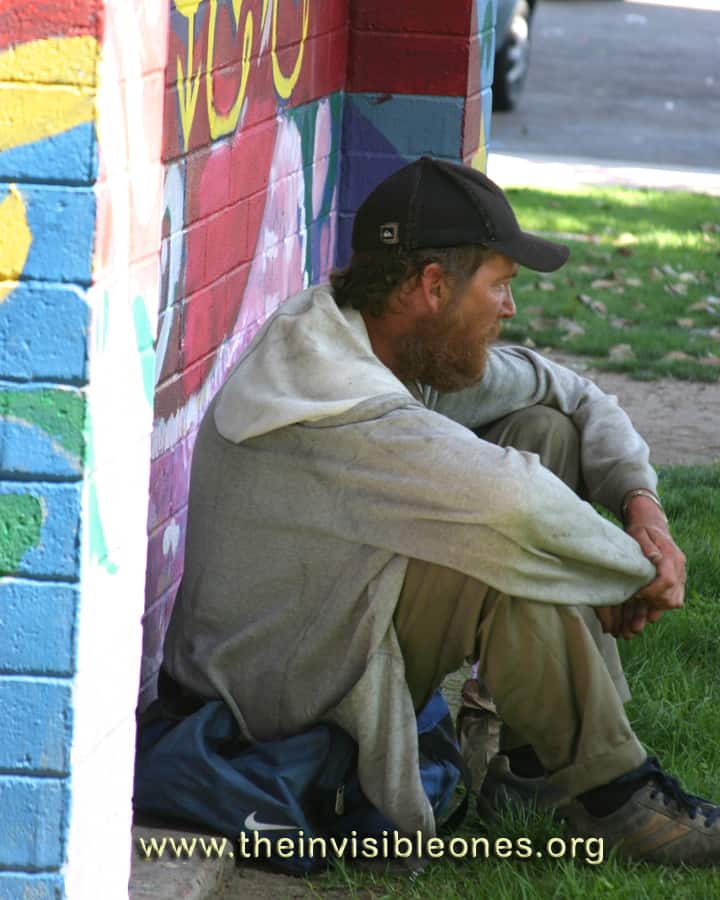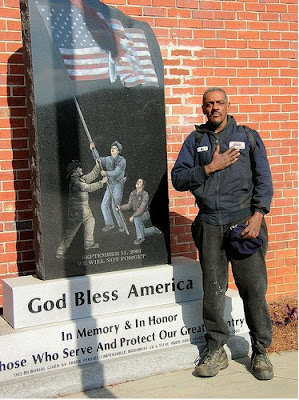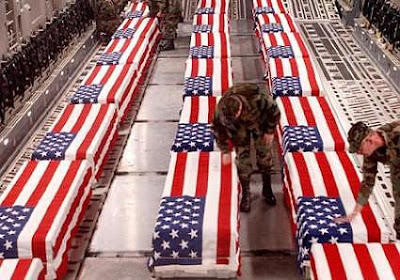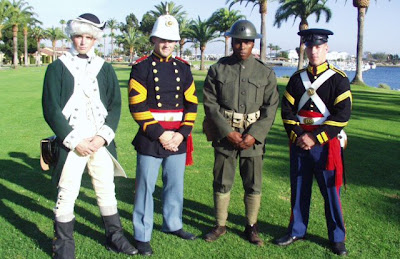Steve Mason
Poet Laureate of the Vietnam War
I originally posted the amazing poem, “The Wall Within” by Steve Mason in February of 2009. And whenever Veterans Day or Memorial Day rolls around, I repost it. That’s because I wish to honor the memory of our veterans who gave the ultimate sacrifice. And consequently, we can enjoy our freedoms today.
Mom and Dad Served in WW2
Both of my parents were World War II veterans. Interestingly, they never spoke of their war-time experiences. Be that as it may, I learned about the reasons for World War II in school, read books, questioned survivors. We had several Pearl Harbor survivors in our living room studio. There we interviewed them for the History Channel. These greatest generation veterans recounted the moment that Pearl Harbor was bombed and how their lives changed forever. Additionally, they spoke about fighting Hitler and his Army who rampaged across the land to eliminate all Jews from the face of the Earth.
A Time of Reflection
Trump’s presidency sparked a sinister flame under white nationalists. Consequently, they have risen to parade with pillowcases on their heads against people of color, uppity women, and anyone else whose views they don’t like.
If Steve Mason were still alive, he would be appalled at this turn of events.
This is a time of reflection for all of us.
Steve Mason and The Wall Within
I have read and re-read Steve’s poem “The Wall Within,” many times. And it illustrates perfectly why a soldier is the best activist for peace.
– Patty
Congressional Record
A few years ago, I was going through some old files and found the copy of a Congressional Record from January 30, 1985. In it was a poem entitled “The Wall Within” which Vietnam Veteran poet laureate, Steve Mason had presented on Veterans Day 1984 on The Mall.
According to the Preamble by the Hon. Stewart B. McKinney of Connecticut, Veterans Day had taken on a new dimension.
“The Vietnam Memorial
was completed, dedicated and turned over to the United States and its people. Most of my colleagues were unable to participate in the Veterans Day ceremonies on The Mall, but I would like to share with them a part of the observance which I believe to be a positive sign in the healing process from the Vietnam war.
“The National Poet Laureate of the Vietnam Veterans of America, Steve Mason, read to the vast crowd that day an excerpt from his work “Johnny’s Song.” Having served his country in Vietnam, Steve Mason knew a lot of Johnnys. Having known a lot of Johnnys, Steve Mason continues to serve his country.”
For Lady Patricia
Steve Mason had signed the document and written this to me:
“For Lady Patricia,
who writes poetry
in a world led by men
who make no music and
have no dreams –
Thanks for being who you are.”
-Steve Mason
I thought back to when I had met Steve at a writers’ conference in Southern California in the late 1980’s. I remember feeling honored and touched when he gave me the poem. I read it and put it in my file cabinet. Subsequently, 20 years later, after having produced a documentary on homeless combat veterans (“The Invisible Ones: Homeless Combat Veterans“) this document found its way into a virtually whole different set of hands, mine, in that I now have a better understanding of what Steve went through as a veteran of the Vietnam War.
After that, I googled “Steve Mason” to see what had become of him and found that he had died on May 23rd, 2005, from Agent Orange exposure.
Death of Poet Steve Mason
—————————
By RUKMINI CALLIMACHI / Associated Press
Poet Steve Mason — a soldier who became the unofficial bard of the Vietnam War — has died at the age of 65.
Considered the poet laureate of the Vietnam Veterans of America, Mason’s blank verse gave voice to a generation’s wounds. It was his poem, “The Wall Within” which was read at the 1984 dedication of the Vietnam Wall in Washington, D.C.
Mason, a resident of Ashland, was a longtime proponent of Oregon’s Death with Dignity Act. But his family said Mason, who died at his home of lung cancer last Wednesday, did not use the lethal dose of pills which had been granted to him.
“It gave him great comfort to know he had that option, but I think in the end he didn’t need it,” said his daughter, Jessica Mason, 24, in a telephone call from Ashland. “The hospice nurse said it was one of the most peaceful deaths she had ever seen.”
Mason began to write poetry as a way to make sense of the war and connect with others who had shared the same experience, said his first wife Diane Weirch.
The Suffering of Vietnam Veterans
“It was a long time before the vet centers opened and before Vietnam vets stopped suffering alone,” she said.
He began by writing love poems in the 1970s, co-writing “Moths and Violets” with a friend.
Eventually, he began opening up the wounds of war in blank verse, publishing the trilogy he is best known for: “Johnny’s Song: Poetry of a Vietnam Veteran” in 1986, “Warrior for Peace” in 1988 and “The Human Being — A Warrior’s Journey Toward Peace and Mutual Healing” in 1990.His verse reverberated with feeling. “His poetry, though you could tell he was no dummy, was all emotion — and that’s a language that reaches everyone,” said Weirch.
The Vietnam Wall
In one of his best known poems, he compares the Vietnam Wall to the internal wall he has created in an attempt to keep his life from spiraling out of control:
“There is one other wall, of course. / One we never speak of. / One we never see, / One which separates memory from madness. / In a place no one offers flowers. / The wall within. / We permit no visitors. / Mine looks like any of a million / nameless, brick walls_ / it stands in the tear-down ghetto of my soul; / that part of me which reason avoids / for fear of dirtying its clothes.”
His family said that in letter after letter, veterans who had never met Mason reached out to thank him, saying he had given them a voice. Some used Mason’s verse to explain to wives and children how they feel about the war they could not themselves speak about.
Going through his possessions, his family discovered “legal pad after legal pad after legal pad” brimming with poems, said Weirch, a collection the family hopes to someday collate into a posthumous volume.
He is survived by three daughters and one son.
———————–
A Poem for the Ages
I decided to post the poem, “The Wall Within” by Steve Mason. A poem that took me over 20 years to fully appreciate. A poem that needs to be shared.
Delivered at the commencement of the National Salute II in Washington, D.C. on November 10, 1984, as part of the official activities prior to the dedication of the Vietnam Veterans Memorial (“The Wall) as a national monument. It honors the personal list of love and loss that each American has marked in his/her heart. Poem entered into the Congressional, January 30, 1985. Johnny’s Song: Poetry of a Vietnam Veteran. Steve Mason. (May 1986). Bantam Books.
“Dedicated
to all of us
who know the true cost
of war
and have paid the price.”The Wall Within
Most real men
hanging tough
in their early forties
would like the rest of us to think
they could really handle one more war
and two more women.
But I know better.
You have no more lies to tell.I have no more dreams to believe.
I have seen it in your face
I am sure you have noticed it
in mine;
at the unutterable,
unalterable truth of our war.
The eye sees
what the mind believes.
And all that I know of war,
all that I have heard of peace,
has me looking over my shoulder
for that one bullet
which still has my name on it–circling
round and round the globe
waiting and circling
circling and waiting
until I break from cover
and it takes its best, last shot.In the absence of Time,
the accuracy of guilt is assured.
It is a cosmic marksman.
Since Vietnam,
I have run a zigzag course
across the open fields of America
taking refuge in the inner cities.
From Mac Arthur Park
to Washington Square
from Centennial Park
to DuPont Circle,
on the grassy, urban knolls of America
I have seen an army of combat veterans
hidden among the trees.
Veterans of all our recent wars.
Each a part of the best of his generation.
Waiting in his teeth for peace.They do not lurk there
on the backs of park benches
drooling into their socks
above the remote, turtled back
of chess player playing soldiers.
They do not perch upon the gutter’s lip
of midnight fountains
and noontime wishing wells
like surrealistic gargoyles
guarding the coins and simple wishes
of young lovers.No.
I have seen them in the quiet dignity
of their aloneness.Singly, in the confidence
of their own perspective.
And always at the edges of the clearing.
Patrolling like perimeter guards,
or observing as primitive gods,
each in his own way looks out to the park
that he might “see” in to the truth.
Some, like me
enjoy the comfortable base
of a friendly tree that we might cock one eye
to the center of the park
toward the rearing bronze horsemen
of other wars
who would lead us backwards to glory.
Daily, they are fragged
by a platoon of disgruntled pigeons saying it best for all of us.
And with the other eye,
we read the poetry of America the Beautiful
as she combs her midday hair
and eats precise shrimp sandwiches
& salad Nicoise catered by Tupperware–
and never leaves a single crumb.
No wonder America is the only country in the world which doesn’t smell like food.…and I remember you and me
picnicking at the side
of the Ho Chi Minh Trail in the rain
eating the Limas and Ham from the can
sitting easy in our youth and our strength
driving hard bargains with each other
for the C-ration goodies
we unwrapped like Christmas presents.
Somehow it really seemed to matter
what he got versus what you got.It wasn’t easy trading cheese and crackers
for chocolate-covered peanut butter cookies!
And the pound cake–Forget about it!
I knew a guy who would cut a hole in it
and pretend it was a doughnut.
For six months I watched that
and refused to ask him about it.
I did finally. And you guessed it.
He hated pound cake.
And remember the water biscuit
that came in its own tin?–
I think they had the moxie to call it a cookie–
it came with the marmalade
and was made by that outfit in Chicago
we promised to burn to the ground someday.Damn, how did your buddy, the animal,
ever eat that crap?
Then, we’d happily wash down the whole mess
with freckly-faced strawberry Kool-Aid
straight from the canteen
some days there’d be goofy grape
(anything to keep from choking on the taste of purified water).
Bleck.But somehow I sensed all the while
that I’d never be able to forgive myself
for enjoying your company so much
or being so good at the game we played.
We were the best–you and I.In our parks there are whole other armies of veterans
mostly young and mostly old
but always ageless
who are not alone.
They share with their families
and their friends
these open-aired
above-ground time capsules
of our national culture.
They read aloud to themselves
and their children
from the plaques and statues
monuments and markers
those one-line truths
of our common experience
as if there could be a real significance
in words like Love and Hate tattooed
on the clenched, granite fists of America.
A homeless veteran stands before a plaque to honor those who serve and protect our country
Sometimes, when I am angry
it seems as if I could start my own country
with the same twenty Spill and Spell words
we shake out at the feet of our heroes
like some crone spreading her hands
over the runes prior to a mystic reading.
Words like:
peace and sacrifice, war and young
supreme and duty, service and honor
country, nation, men and men and men again,
sometimes God and don’t forget women!
Army, Air Force, Navy, Marines and freedom.Then, just as quickly, the anger passes
and reverence takes its place.
Those are good words, noble words, solemn
& sincere.
It is the language of Death
which frightens me;
it is unearthly to speak life concepts
over the dead.
Death is inarticulately final
refusing forever to negotiate.
That, and the awesome responsibility
we place eternally on our fallen
teenage sons,
seems unbearably heavy
against the lengthening prancing
shadows of Sunday’s frisbees.Apparently, there is no period
which can be placed after sacrifice.
All life is struggle.
An act of natural balance
and indomitable courage.
As it is with man
so it is with mankind.
If we permit Memorial Day
to come to us every day,
we ignore the concept of sacrifice
and dilute its purpose.
The Flag-Draped Caskets of Military Personnel Who Fell During the Iraq War[/caption]
When we do that
we incur the responsibility to effect change.
If we are successful, the sacrifice has renewed meaning.
It seems there is no alternative to life.
But there may be to war…The values of our society
seem to be distributed in our parks
and find only confusion and sadness.
Strange, I have observed no monuments
to survivors.
No obelisk to mark the conflict
of those who risked
and lived perhaps to fight again
or perhaps to speak of peace.
Nowhere, yet, a wall for the living.
There is no wonder
guilt is the sole survivor of war.
We do not celebrate life after combat
because our concept of glory
lives neither in victory nor in peace
but in Death.There are plaques at the doorsteps of skyscrapers;
in New York on the 10th and the Avenue
of the Americas it reads:IN MEMORY OF THOSE
FROM
GREENWICH VILLAGE
WHO MADE THE SUPREME SACRIFICE
IN THE KOREAN CONFLICT
1950-1053In Nashville’s Centennial Park
in a shaded wood
to one side of the Parthenon
built to scale and to the glory
which was Greece,
a small statue stands;
it is inscribed:I GAVE MY BEST
TO MAKE A BETTER WORLD
1917-1918I stood there one fall
ankle deep in leaves
and looked up at the night sky
through a hole in a ceiling of trees
wondering how much better the world
might look from up there.
From the moon
only one manmade object
can be viewed by the naked eye:
The Great Wall of China
(a tribute to man’s functional paranoia).
It’s a peculiar perspective
because we’re a lot closer
and the only manmade object we see
is THE Wall in Washington, D.C.
(the veterans’ solemn pledge to remember)There is one other wall, of course.
One we never speak of.
One we never see,
One which separates memory from madness.
In a place no one offers flowers.THE WALL WITHIN.
We permit no visitors.
Mine looks like any of a million
nameless, brick walls–
it stands in the tear-down ghetto of my soul;
that part of me which reason avoids
for fear of dirtying its clothes
and from atop which my sorrow and my rage
hurl bottles and invectives
at the rolled-up windows
of my passing youth.
Do you know the wall I mean?I learned of mine that night in the rain
when I spoke at the memorial in Washington.
We all noticed how the wall ran like tears
and every man’s name we found
on the polished, black granite face
seemed to have our eyes staring back at us,
crying.
It was haunting.
Later I would realize
I had caught my first glimpse
of the Wall Within.
And those tears were real.You and I do not walk about the Wall Within
like Hamlet on the battlements.
No one with our savvy
would expose himself like that
especially to a frightened, angry man.
Suicide loiters in our subconscious
and bears a grudge; an assassin
on hashish.
We must be wary.
No. We sit there legless in our immobility
rolling precariously in our self-pity
like ugly Humpty Dumpties
with disdain even for the king’s horses
as we lean over the ledge to write
upside down with chalk, bleached white
with our truth
the names of all the other casualties
of the Vietnam War
(our loved one)
the ones Pentagon didn’t put in uniform
but died anyway.Some because they stopped being who they always were
just as truly as if they’d found
another way to breathe.
Others, because they did die
honest-to-God casualties of the Vietnam War
because they lost the will to breathe at all.My mother gave her first recital
at Carnegie Hall at age eleven.
Sometimes, when I was a boy
I’d watch her play the piano
and wonder if, God, after all, was not a woman.
One evening when I was in the bush
she turned on the 6:00 news
and died of a heart attack.
My mother’s name is on the Wall Within.You starting to get the idea?
Our lists may be different
but shoulder to shoulder
if we could find the right flat cloud
on a perfect, black night
we could project our images
upon a god-size drive-in theatre
wide enough to race Ben Hur across
for a thousand years…Because the Wall Within
adds up the true cost of war…
We can recite 58,012 in our sleep
even the day after they update it,
but how many of those KIA had kids?
How many of them got nice step-dads?
Whose wall do they go on?
Sailor Kissing Nurse – Photograph by Patty Mooney[/caption]
And what about you vets
who came home to your wife and kids
only to divorce her because
there wasn’t anyone to be angry at?
How many dimes
have you heard long-distance fathers
dropped into the slot
to hear how another man
was raising your children?Yeah, Yeah, I can hear you hollerin’,
“Put it on the wall! Put it on the wall!”
Damn right, it’s on the wall…
And you remember how that came down?
you told the three year old
his daddy loved him
and his mommy loved him
and nothing would ever change that.
But it did anyway.
But not because you didn’t love him enough,
but because you loved him too much
to be a part-time daddy.
And you couldn’t explain that to him
because you couldn’t explain it to you.
What the hell? I mean who were you,
Spinoza? You came home a twenty-two-year-old
machine gunner for chrissake,
you did the best you could.PUT IT ON THE WALL!!
And somewhere, in an art gallery, maybe
is a portrait of American Grieving Parenthood.
Handholding, Rockwellian caricatures
of wisdom and forbearance
and oh yes, pride
sitting on the front porch
of the township
waving their lemonades
at the Greyhound bus driver.
Baloney. The names go UP!Because every time you can’t find Mom,
you damn well better call Doc Smith
cause she’s up on the second floor again
sitting on the floor in Johnny’s closet
smelling his Varsity sweater
with the sleeves around her shoulders
sobbing something maybe only Johnny ever
understood.But don’t worry about dad,
who never fished again,
or watched a ballgame on TV again
and won’t talk to anyone this year
between the ages of thirty and forty.
He’s doing fine.
He just doesn’t exercise
as much as he should,
but Doc Smith assures us there’s no medical
reason why the folks should have separate bedrooms;
Dad just likes to read a lot these days.If you and I were men of common conscious
we might agree on a collective dedication
to our Walls Within.
As for me
they could all read:
This wall is dedicated
to mothers, fathers, sisters, brothers,
wives, husbands,
sons, daughters,
lovers, friends,
and most of all dreams
of the men and women
who risked it all in Vietnam
while you continued to lose them
during and after the war
with less a chance than they for a parade
and no chance at all for an explanation.You lost them to bullets, internment,
drugs, suicide, alcohol, jail, PTSD
Divorce, but never never did you any of you
ever lose them to the truth
which is now being shared
across this great nation
in such an act of spontaneous
moral courage, it’s like many
never have been seen on any battlefield
in the history of mankind….Amen to that, brother.
***********************
From Johnny’s Song: Poetry of a Vietnam Veteran by Steve Mason (May 1986).
A Bantam Book
After the Reading of the Names by Steve Mason
(Shared at the Peace Memorial,
Old Town, San Diego, Memorial Day, l984)I just call him Johnny;
like in Johnny went off to war
and Johnny didn’t come home.
And remember him,
like Johnny was a helluva ball
player and Johnny’s girl believed in dreams.
And I can find him,
like in Johnny’s folks
moved away that year-some say, Minnesota;
but his name’s still here
not two miles from his old high school
on a Peace Memorial
(which is a funny name for it).
Sometimes like today,
we read All the names
some call it “the reading of the names.”
Me, I just call it Johnny’s song.
And as much as I love the words,
I’ve come to really hate the music…
I am a Vietnam Veteran, a friend of mine who is the Team Leader of The Lancaster Pa. ( Joann Thompson sent me Mr. Mason’s poem. I had tears in my eyes reading it. It is the TRUTH IN VERSE . Cary Smith < Team leader , The DC Vet Center, (The National Vet Center 🙂 Washington, DC. I cannot explain how I never read this before. I’ve read From The Other Side by , Patrick Camunes, which is another wonderful poem.
A Dream and a Poem for Patty
I am sending this to you because I’m hoping it somehow gets into the hands of Steve Mason’s family.
On Tuesday night, 9/17, a guy I knew came to me in a dream. We were both about 17 or 18 and kind of hung out together in Bayside Queens, for a year or two (57-58′) before we both went our separate ways into the military, which would change each of our lives drastically. Me: they made me a cop. Him: they sent to Vietnam. But that is only part of the story.
In the dream all that I can remember of it, is a flash of him running with a football in a game of schoolyard football that is a kind of suicidal version of football played by city kids with no money for protective gear.. He was an amazing player. Fast, strong and as graceful as a gazelle. And then I woke up and all I could remember was that his first name was Steve and that he was kind of a young, what we used to call “beatnik.” Steve carried around a pad with him and wrote spur of the moment kind of poetry, and that even to my wine-soaked 18 year old head, he was good….really good.
And then I remembered that he had actually written a poem about me on this spiral pad, that he called “The Mad Beast of Bayside.” I can’t remember if he tore out the pages and gave them to me or just let me read them. I do remember that it captured in an amazingly creative and clever construction of words, the essence of what I was in 1957-8: a violent, frightened young man already in search of some kind of meaning in this life and really unaware that I was searching for anything.
So I lay in bed for an hour trying like hell to remember his last name.
So I fall asleep and wake up an hour later and there it is in the middle of my mind more than a half century later, like someone had just put it there: Steve Mason.
With my wife Laura still sleeping I go into my office and Google him. Turns out he became a famous poet and in fact was named Poet Laureate of the Vietnam War and that he died in 1965. I find a video of him talking to California politicians just months before he died…..I watched it.. I shouldn’t have….
When Laura woke up I was crying and wasn’t quite sure why…
Life and why things happen continues to plague/mystify/amaze/depress me….But I’m addicted to the mystery…think that somehow before I follow Steve, I’ll solve at least one micro grain of it. So I buy all three of Steve’s books and read them.. My wife Laura,a psychotherapist, reads them too.. Says, “You and he could have been great friends,..” She suspects that Steve writing that poem was an offer of friendship we were both too young and screwed up to understand…
Anyway, I thought this little strange story might have a really cool/amazing ending if among the poems Steve left behind was one called “The Mad Beast of Bayside.”Michael
http://www.policetrialexpert.com
expert53@aol.com

